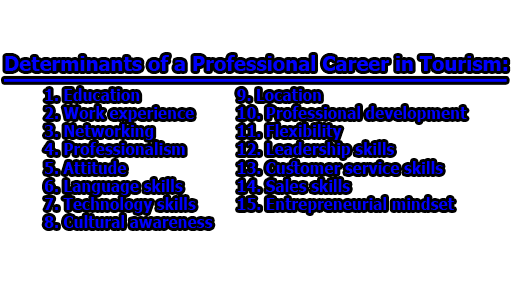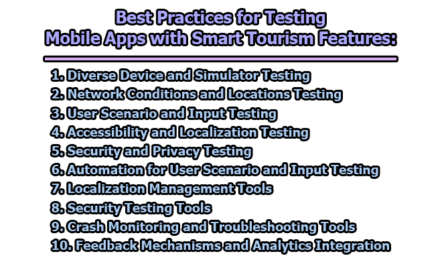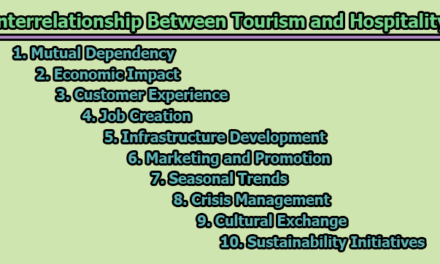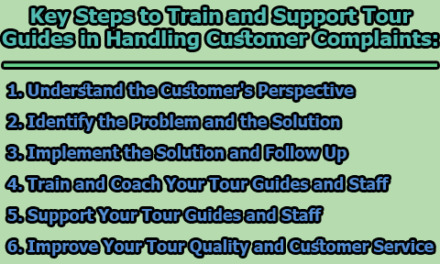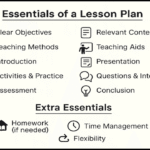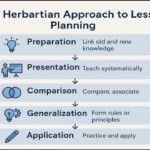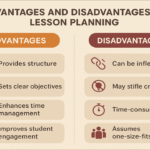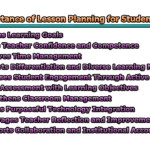Determinants of a Professional Career in Tourism:
Tourism is one of the world’s fastest-growing industries, accounting for approximately 10.4% of the world’s gross domestic product (GDP) and 10% of the world’s total employment (WTTC, 2019). The industry comprises various sub-sectors such as accommodation, food and beverage services, transportation, travel agencies, and others. Given its significant contribution to the global economy, the tourism industry has become an attractive career choice for many individuals worldwide. However, what are the determinants of a professional career in tourism? This article aims to provide a comprehensive analysis of the factors that influence a professional career in tourism.
1. Education: The tourism industry requires highly skilled and knowledgeable personnel to provide quality services to tourists. The level of education of an individual is one of the significant factors that determine their career progression in tourism. A higher level of education enhances an individual’s competitiveness in the industry, as it equips them with the necessary skills, knowledge, and competencies to perform their duties effectively. In addition, individuals with higher education levels are more likely to be promoted to higher positions in the industry, such as management and supervisory roles, which come with more significant responsibilities and higher salaries.
2. Work experience: Employers in the tourism industry often value practical experience and skills that an individual has gained from working in the industry. Work experience enables an individual to develop critical skills such as customer service, communication, problem-solving, and teamwork, which are essential in the tourism industry. Employees with more work experience are more likely to be promoted to higher positions in the industry, and they often receive higher salaries compared to their less experienced colleagues.
3. Networking: The tourism industry is a people-centered industry that requires individuals to establish and maintain good relationships with customers, suppliers, and other industry players. Networking enables individuals to build a broad and diverse network of contacts in the industry, which can be beneficial in advancing their career prospects. For instance, individuals can receive referrals for job openings, receive career advice from industry professionals, or secure partnerships with other industry players through networking.
4. Professionalism: The tourism industry demands that individuals maintain high levels of professionalism in their conduct, appearance, and communication. Professionalism involves exhibiting ethical behavior, adhering to industry standards, and providing quality services to customers. Individuals who display high levels of professionalism are often recognized and rewarded by their employers, as they enhance the reputation of the organization and improve customer satisfaction.
5. Attitude: The tourism industry requires individuals who possess a positive attitude towards their work, colleagues, and customers. A positive attitude involves being friendly, courteous, and helpful to customers and colleagues, being proactive in solving problems, and demonstrating a willingness to learn and improve. Individuals with a positive attitude are often perceived as more approachable and pleasant to work with, and they are more likely to receive promotions and recognition from their employers.
6. Language skills: The tourism industry involves interacting with customers from diverse cultural backgrounds, and individuals with excellent language skills are better placed to provide quality services to customers. Language skills enable individuals to communicate effectively with customers, understand their needs, and provide appropriate solutions. In addition, individuals with language skills are often preferred for roles that involve interaction with customers from different countries, such as tour guides and travel agents.
7. Technology skills: Technology skills are becoming increasingly important in the tourism industry. The industry has embraced technology in various aspects, such as online booking systems, digital marketing, and virtual tours. Individuals with excellent technology skills are better placed to perform their duties effectively and efficiently. Technology skills enable individuals to use various software and applications to enhance their productivity, communication, and problem-solving skills. Furthermore, individuals with technology skills are more likely to be considered for roles that require the use of technology, such as social media managers, digital marketers, and website developers.
8. Cultural awareness: The tourism industry involves interacting with customers from different cultural backgrounds, and individuals with a good understanding of different cultures are better placed to provide quality services to customers. Cultural awareness involves understanding the beliefs, values, customs, and practices of different cultures and incorporating them into service provision. Individuals with cultural awareness are often perceived as more respectful and considerate of customers’ needs, and they are more likely to receive positive feedback and repeat business.
9. Location: The tourism industry is location-based, and individuals who work in popular tourist destinations are more likely to have better career prospects than those in less popular destinations. Popular tourist destinations often have more significant job opportunities, higher salaries, and better working conditions than less popular destinations. Furthermore, individuals who work in popular tourist destinations are more likely to gain valuable work experience, develop their skills, and build their network.
10. Professional development: The tourism industry is constantly evolving, and individuals who engage in continuous learning and development are better placed to succeed in their careers. Professional development involves attending workshops, conferences, and training sessions, obtaining professional certifications, and pursuing further education. Individuals who engage in professional development often acquire new skills and knowledge, enhance their competitiveness in the industry, and improve their career prospects.
11. Flexibility: The tourism industry is highly dynamic, and individuals who can adapt to changing circumstances are better placed to succeed in their careers. Flexibility involves being open to new ideas, approaches, and strategies, as well as being able to work in different environments and situations. Individuals who are flexible are more likely to be considered for diverse roles in the tourism industry, as well as being able to manage unpredictable situations that may arise in their work.
12. Leadership skills: Individuals who possess leadership skills are better placed to take on managerial and supervisory roles in the tourism industry. Leadership skills involve the ability to inspire and motivate others, as well as being able to provide direction and guidance. Individuals with leadership skills are often perceived as more reliable, trustworthy, and effective in their roles, and they are more likely to be considered for promotions and career advancement.
13. Customer service skills: The tourism industry is customer-oriented, and individuals who can provide quality customer service are better placed to succeed in their careers. Customer service skills involve the ability to listen actively, communicate effectively, and resolve conflicts. Individuals with excellent customer service skills are often perceived as more approachable, friendly, and professional, and they are more likely to receive positive feedback and repeat business.
14. Sales skills: The tourism industry is highly competitive, and individuals who can sell tourism products and services effectively are better placed to succeed in their careers. Sales skills involve the ability to identify customer needs, promote products and services, and close sales. Individuals with excellent sales skills are often perceived as more persuasive, convincing, and trustworthy, and they are more likely to achieve sales targets and earn commissions.
15. Entrepreneurial mindset: The tourism industry presents numerous opportunities for individuals to start their own businesses, such as tour guides, travel agencies, and event planners. Individuals who possess an entrepreneurial mindset are better placed to identify and exploit such opportunities, as well as be able to manage risks and uncertainties associated with entrepreneurship. An entrepreneurial mindset involves being innovative, creative, and proactive, as well as being able to take calculated risks and learn from failures.
From the above discussion, we can say that the determinants of a professional career in tourism are multifaceted and interdependent, involving various factors such as education, work experience, networking, professionalism, attitude, language skills, technology skills, cultural awareness, location, professional development, flexibility, leadership skills, customer service skills, sales skills, and an entrepreneurial mindset. Individuals who aspire to have a successful career in tourism should focus on developing these factors and building a strong foundation for their career growth.
References:
- Airey, D. (2010). Graduate employment and employability in the tourism sector: An international perspective. Journal of Hospitality, Leisure, Sport & Tourism Education, 9(1), 16-27.
- Buhalis, D., & Law, R. (2008). Progress in information technology and tourism management: 20 years on and 10 years after the internet – The state of eTourism research. Tourism Management, 29(4), 609-623.
- Creswell, J. W. (2014). Research design: qualitative, quantitative, and mixed methods approaches. Sage publications.
- Evans, N., Stonehouse, G., & Campbell, D. (2012). Strategic management for travel and tourism. Taylor & Francis.
- Fyall, A., Garrod, B., Leask, A., & Wanhill, S. (2012). Managing visitor attractions: New directions. Routledge.
- Hudson, S., & Miller, G. (2006). The responsible tourism paradigm. In Goodfellow, C., & Weaver, D. (Eds.), Tourism and development: Concepts and issues (pp. 51-62). Channel View Publications.
- Knowles, T., & Hsu, C. H. C. (2015). The Routledge Handbook of Hospitality Studies. Routledge.
- Lashley, C., & Morrison, A. (2000). In search of hospitality: Theoretical perspectives and debates. Butterworth-Heinemann.
- Morrison, A., & O’Mahony, B. (Eds.). (2003). Concepts and cases in tourism and hospitality marketing. CABI.
- Tribe, J. (2011). The economics of recreation, leisure, and tourism. Elsevier.

Assistant Teacher at Zinzira Pir Mohammad Pilot School and College

